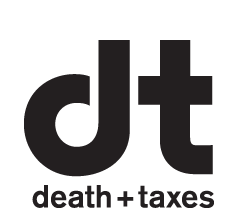News
When Voters Consume, Does Democracy Win?
Andrew Belonsky :: Wednesday, May 26th, 2010 11:00 am
With primaries well underway, and midterm campaigns heating up, Americans will soon be inundated with mass mailers, commercials, and a host of other politically minded marketing materials. Candidates advertise in much the same way as brands. We American citizens are not just voters: We’re consumers, ingesting civil servants the same way we do a favorite soda. And private businesses are making bundles in the process. This may not be a bad thing.
Candidates have been selling themselves to the public since time immemorial. It comes with the territory. Modern campaigning, however, got a shake up in 1860, when none other than Abraham Lincoln distributed buttons bearing his face, and it wasn’t long after, around 1880, that commercial marketing began to take off, thanks to the development of national companies and a growing populous market.
Thus brands were born, paving the way for a plethora of products for consumers to enjoy. Technological advancements such as radio and television proved invaluable for brands, who helped turn communicative arenas into a many-tentacled advertising market, and as time went on, it’s only natural that political candidates would get swept up in the marketing madness.
There was a time when political parties bore the burden of selling a candidate: they dealt with campaign fliers, mailers and such. That’s all changed. Sure, the parties spend liberally when it comes to pushing an ideal candidate: A private enterprise, however, has evolved and to take on key responsibilities to ensure voters invest in their contender.
Mark Grebner, who founded Practical Political Consulting, which compiles voter information for campaigns, remembers working on a 1972 campaign and, to expedite the process, writing the campaign literature himself. He ended up shaping the candidate’s public message. His colleagues saw it as insubordination, he told me. They didn’t realize Grebner and like-minded politicos across the nation were laying the foundation for what would become a booming business. And it shows no sign of slowing down.
There’s no way to know how much money political marketing makes each year. It’s definitely in the hundreds of millions, and notoriously hard to track. It also may be the most partisan business in history. Very rarely do you find an organization that works for both sides of the political divide: The business is ideologically split. But that’s okay because there’s money all along the political spectrum. And people sure are making bank: Mitt Romney’s PAC has this year given $288,753 to a marketing firm called Targeted Victory, which is spearheading Tea Party favorite Marco Rubio’s gubernatorial campaign in Florida.
Political marketing goes something like this: Political experts pick a region, and then pore over local voting records, petitions and the other ballot-related information to break down people into political position. That data, along with FEC and other public documents, then goes to political marketing firms, who work with a candidate and their team to target those potential votes. The political hopeful is then boiled down to a digestible message and packaged as a concise, enticing product for voters to devour.
When asked whether marketing turns voters into a consumer, Stephanie McLean from the progressive group GMT Strategies remarked, “Absolutely. One hopes so.” But politicians have it a little harder than Pepsi, because far fewer people are interested in the democratic process than soda, and boldfaced advertisements are often tossed in the bins. Candidates are tasked with ensuring their mass mail message stands apart. “We’re bombarded by messages everyday. We’re not competing with the other candidate. We’re competing with the Sharper Image catalogue,” explains McLean.
Pages: 1 2

